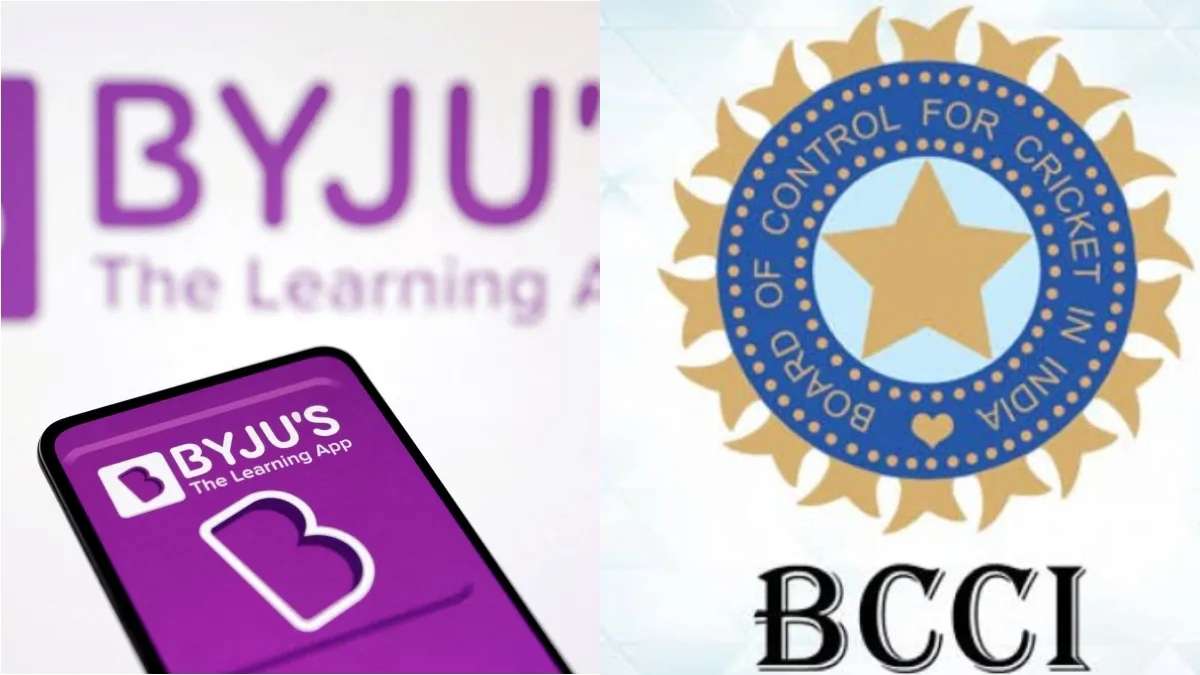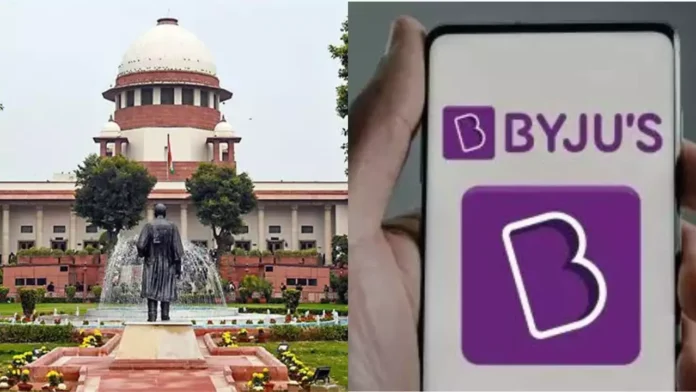In a significant blow to the edtech giant Byju’s, the Supreme Court of India has quashed the National Company Law Appellate Tribunal (NCLAT)‘s decision to approve a Rs 158-crore settlement between Byju’s (Think and Learn Pvt Ltd) and the Board of Control for Cricket in India (BCCI). The court ruling revives Byju’s ongoing legal troubles and puts the company’s insolvency proceedings back on track, adding to the complexities the company faces.

Byju’s Settlement Overturned: What Went Wrong?
The Supreme Court, led by Chief Justice of India DY Chandrachud and Justices JB Pardiwala and Manoj Misra, ruled that the NCLAT had violated the Insolvency and Bankruptcy Code (IBC) procedures by prematurely concluding the Corporate Insolvency Resolution Process (CIRP) in Byju’s favor. The settlement between Byju’s and BCCI was ruled as wrongly approved, and the Rs 158 crore deposited in escrow will now be transferred to an escrow account managed by the Committee of Creditors (CoC).

Byju’s had hoped that the settlement would close the chapter on this particular legal battle, but the court’s judgment has not only revived the insolvency proceedings but also cast a spotlight on the company’s financial troubles.
Why Byju’s Settlement Was Blocked
The court found that the NCLAT had misused its inherent powers under Rule 11 of the NCLAT Rules, 2016, by allowing the withdrawal of the insolvency application without following the proper procedure. The ruling stated that once a CIRP is initiated, the control of the debtor’s affairs passes to the Interim Resolution Professional (IRP), and any withdrawal of the application must follow specific legal procedures.

This is where Byju’s stumbled. Instead of routing the application through the IRP, Byju’s attempted to settle directly with BCCI. The Supreme Court was clear in its criticism, noting that the NCLAT should have paused the process and instructed the parties to comply with Section 12A of the IBC, which governs the withdrawal of insolvency applications. The court emphasized that the NCLT, which handles insolvency cases, is not a “post office” that merely approves settlements without proper scrutiny.
Byju’s Legal Challenges and Financial Struggles
This setback for Byju’s is part of a broader landscape of legal and financial challenges. The company has been embroiled in multiple legal battles, both in India and abroad. The most significant of these involve a dispute with its US-based lender, Glas Trust, over a $1.2 billion term loan that Byju’s defaulted on in June 2023. Glas Trust has accused Byju’s of manipulating loan terms, while Byju’s maintains that it is being unfairly targeted.

The company’s troubles deepened when BCCI took Byju’s to the National Company Law Tribunal (NCLT) for insolvency over the Rs 158-crore default. The NCLT initiated the corporate insolvency resolution process, and an interim resolution professional was appointed to manage Byju’s finances.
With the recent Supreme Court ruling, the insolvency proceedings that were halted by the NCLAT settlement will now resume, potentially jeopardizing Byju’s ability to regain control of its financial and legal standing.
Byju’s Denies Allegations of Wrongdoing
Throughout its legal battles, Byju’s founder, Byju Raveendran, has denied allegations of financial mismanagement. In particular, he has dismissed claims that he hid $533 million from lenders, stating that all funds were used for legitimate purposes. However, the court’s decision to reinstate insolvency proceedings raises further questions about the company’s financial transparency.
The involvement of the US court, the Indian Supreme Court, and investigations by the Enforcement Directorate has placed Byju’s under intense scrutiny. As it navigates these challenges, the company’s reputation and financial health hang in the balance.
How Byju’s Legal Woes Affect Its Future
The recent court decision has far-reaching implications for Byju’s future. The company, once hailed as India’s most valuable edtech startup with a valuation of $22 billion in 2022, now faces significant uncertainty. The ongoing legal battles, financial struggles, and reputational damage could undermine its ability to raise future investments, expand its operations, or even continue as a going concern.
With the insolvency process back in motion, the fate of Byju’s will largely depend on its ability to negotiate with creditors and find a resolution that satisfies all parties. The court’s decision has undoubtedly delayed any short-term recovery for the company.
Impact of Byju’s Legal Setback on the Edtech Industry
The challenges faced by Byju’s also raise concerns for India’s broader edtech industry. The company’s meteoric rise during the COVID-19 pandemic symbolized the potential of online education, but its financial troubles reflect the risks associated with aggressive expansion and heavy borrowing.
Investors and stakeholders in the edtech space may now be more cautious, leading to tighter financing conditions for startups looking to scale quickly. Byju’s struggles could lead to more stringent regulatory oversight of edtech companies, particularly when it comes to financial management and corporate governance.
Conclusion: Byju’s Path Forward Amid Legal and Financial Turmoil
The Supreme Court’s decision to overturn the NCLAT’s approval of Byju’s Rs 158-crore settlement with BCCI marks a critical moment for the edtech giant. With insolvency proceedings set to resume, the company now faces a long road to recovery, both financially and reputationally.
The ruling underscores the importance of adhering to proper legal procedures, especially in the context of corporate insolvency. For Byju’s, the next steps will involve negotiating with creditors, addressing legal challenges, and rebuilding trust with investors and customers alike. How the company manages this crisis will likely determine its future in India’s competitive edtech landscape.


